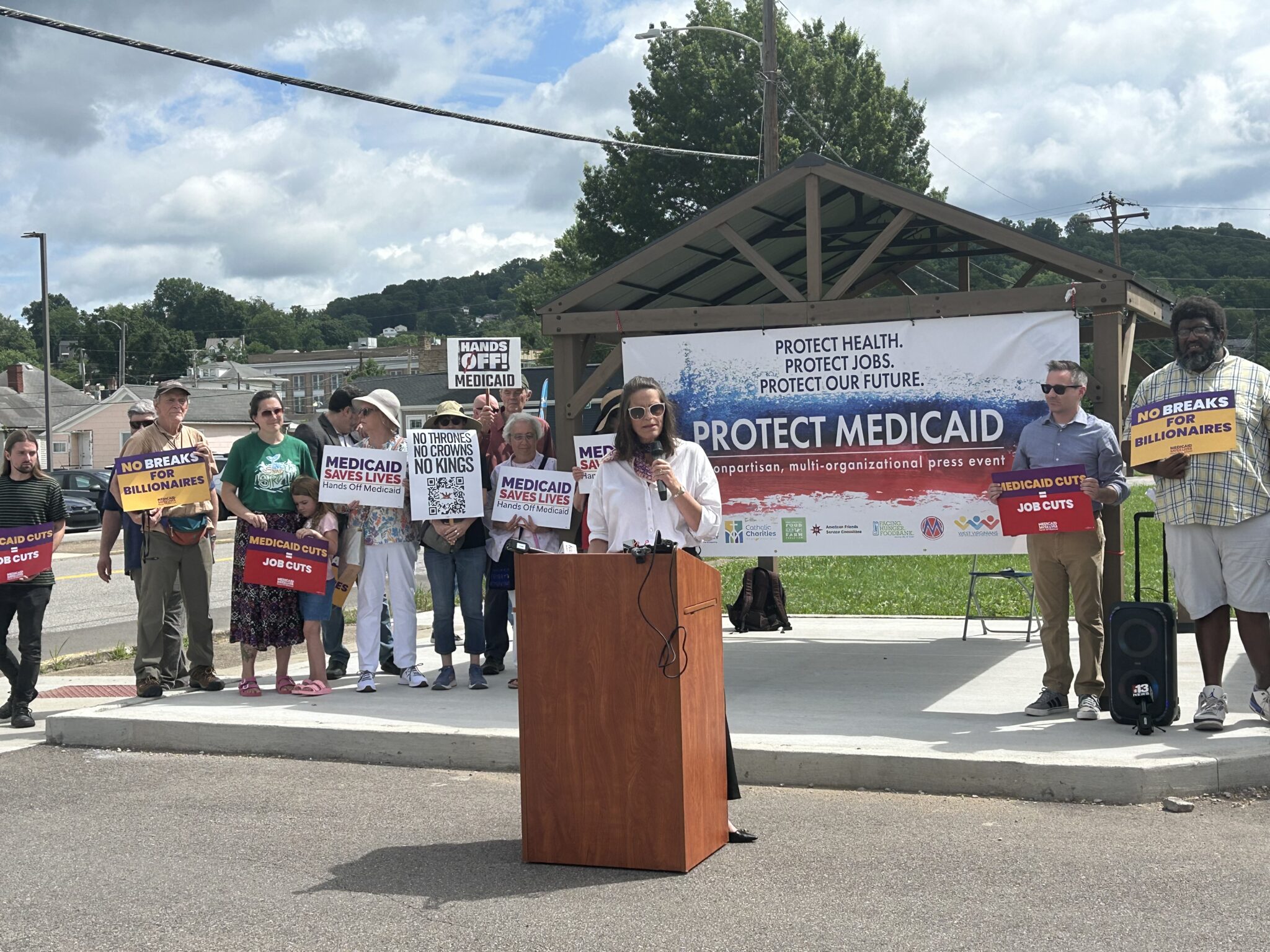
Photo: Lori Kersey/West Virginia Watch
Over a century ago Will Rogers, famous for both his acting and pithy social commentary, quipped, “Ten men in our country could buy the whole world, and ten million can’t buy enough to eat.” Were he alive today, he would have to amend it to say that while 10 men can still buy the whole world, 42 million can’t buy enough to eat.
Because President Trump, while hosting a lavish “Great Gatsby” themed party at his resort in Mar-a-Lago, directed the U.S. Department of Agriculture to withhold SNAP benefits from 42 million children, veterans, and seniors, all while boasting about his new marble bathrooms and gilded ballroom.
These kinds of gross displays of extreme wealth against a backdrop of desperate poverty have become a common feature of American life today. A cursory look at how some of the richest people are presently fairing gives us a sense.
Jim Walton, heir to the Walmart fortune, saw his wealth rise by 192 percent since Trump’s corporate tax breaks were enacted in 2017. According to Americans for Tax Fairness, this translates to an additional $80 million in just eight years for Jim Walton.
By contrast, a young woman working as a cashier at Walmart recently told me that she was worried about how she is going to feed her nine-month-old baby after WIC benefits were taken away. She said she works as much as she can at $11 an hour, but her Walmart wages are not enough to afford formula and food, so she relies on WIC to ensure her baby is getting enough to eat. Accounting for inflation she is making even less in real wages over the same time period Mr. Walton’s fortunes have skyrocketed.
How do we understand the level of precarity facing millions of people like her when today America’s 916 billionaires have now amassed $8 trillion, a 172 percent increase since the enactment of the 2017 Trump tax law?
Joseph Stiglitz gives an answer from his perspective as a Nobel prize winning economist. In The Price of Inequality: How Today's Divided Society Endangers Our Future he points out, “There are two ways to become wealthy: to create wealth or to take wealth away from others. The former adds to society. The latter typically subtracts from it, for in the process of taking it away, wealth gets destroyed.” From this perspective, the extraction of wealth from working people is what is fueling today’s extreme levels of poverty and wealth inequality.
This extraction and concentration of wealth is made possibly by the policy decisions made by those in power, and to that, Will Rogers has a related quip: “America has the best politicians money can buy.” As illustration, West Virginia’s entire congressional delegation voted for the “Big Brutal Bill” which permanently extended Trump’s 2017 corporate tax cuts, partly paid for by cutting health care and food access for West Virginians and other struggling Americans.
Yes the Federal Government is still shut down as President Trump and our representatives in Washington refuse to side with Democrats and restore the premium tax credits that allow West Virginians to access health care. Even so, the Administration can designate contingency and carryover funds to keep SNAP running, as the USDA has done during previous shutdowns. It can also transfer funds from other accounts to make up any shortfall.
In open letter to West Virginia’s four senators and representatives and signed by over 40 food banks, churches, and advocacy groups, they stated, “Allowing SNAP and WIC payments to lapse and hunger to deepen during a shutdown is a policy choice and a preventable cruelty.”
These same groups also requested that each of our senators and representatives sit down as soon as they can with West Virginians who are experiencing the crushing stress of whether or not they will have enough food for their loved ones to eat.
If our leaders continue to prioritize wealthy donors and the corporate elite over the thousands of West Virginians struggling to afford health care and food, then you can count on Will Rogers for some final words of wisdom: “The short memories of the American voters is what keeps our politicians in office.” So let us not forget next time.
This piece by was originally published on November 7, 2025 in the Charleston Gazette-Mail.
Learn more about the West Virginia Economic Justice Project and sign up for updates.